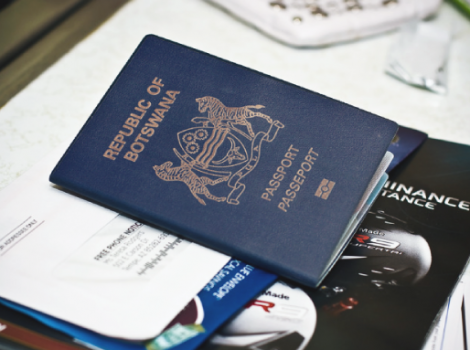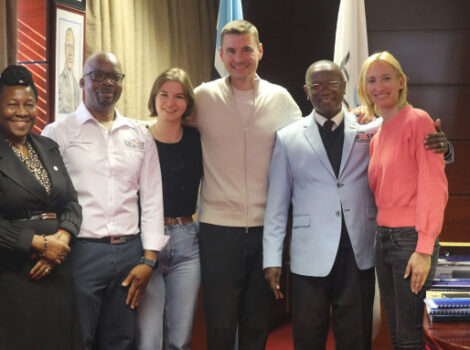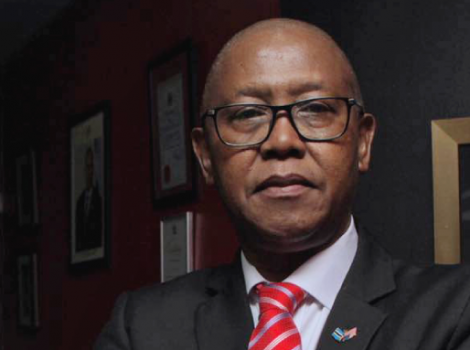
9 December 2023
The Law Society of Botswana (LSB) has called for the abolition of death penalty and direct election of the President. The Society reiterated the call almost a year after the presidential commission of inquiry into the review of the Constitution report was released.
In a position paper on the Presidential Commission of Inquiry into the Review of the Constitution, the Society indicated that the rights set out in the bill of rights are subject to many derogations, some of which are not always consistent with international obligations that the country has signed up to.
“A classic example is the right to life, which the constitution states may be taken in execution of a court sentence,” the LSB said in its position paper.
“In accordance with Article 5 of the Universal Declaration of Human Rights of 1948, which Botswana has ratified, the death penalty should, in all circumstances, be prohibited.”
“Great care should be taken to ensure that the derogations from fundamental rights that are set out in our bill of rights are not inconsistent with any of the international human rights instruments that the country has ratified, such as the International Covenant on Civil and Political Rights; Convention on Elimination of All Forms of Discrimination Against Women; the United Nations Convention Against Torture; Convention on Rights of Children; African Charter on Human and People’s Rights etc,” it indicates.
The paper says the debate as to the extent to which one derogates from the fundamental rights that are enshrined in the constitution, should not simply be informed by what the majority of the people gathered at a Kgotla meeting for a solicitation of their views said, but must be anchored on the various international human rights instruments that Botswana has signed up to. After all, the LSB says, the constitution should not seek to entrench majoritarian tyranny but should instil values which will stand the test of time.
“In a society that has a great wealth disparities, the entrenchment of justiciable socio- economic rights can be a great equaliser,” the Society says.
On other issues the LSB says having regard to enormous powers that are vested in the President, it is an anomaly that he is not directly elected.
“The Commission in rejecting a proposal for a direct election of the president noted that introducing this may result in the legislature being controlled by one political party and the president being from a different political party,” the LSB says.
The LSB maintains the reasons advanced by the Commission for rejecting the direct election of the president are not persuasive, saying democracy is served better when there are checks and balances.
“A government in which, legislative power and the executive are in different hands as opposed to being concentrated in the same hands, is less likely to govern with prudence and in the best interests of the citizenry,” the LSB says.
Therefore, the LSB “(take(s) the view that our democracy would be better served by the electorate directly electing the president.”
The LSB says the president, as head of the Executive, acts on the advice of Cabinet Ministers and Assistant Ministers appointed from amongst Members of Parliament. Confining the appointment of Ministers from amongst Members of Parliament severely limits the diversity of skill that is available to the president in the appointment, it argues.
“This ultimately affects service delivery to the citizenry. Limiting the choice of Cabinet Ministers to Members of Parliament also line between the executive and legislature, with the result that in practice the legislature fails to hold the executive accountable, because ruling party back benchers may harbour hopes of being appointed to cabinet, and, therefore, be less inclined to criticising the executive,” the position paper says.
The LSB says at present, the legislature is hamstrung in terms of its ability to remove a sitting President.
“It is hamstrung by the fact that, if a vote of no confidence succeeds, Parliament must be dissolved and a fresh election called. Such a provision stifles Parliament’s ability to censure the President for acts that they disapprove of,” the LSB sys.
Therefore, the LSB recommends that Parliament be given the ability to remove the president through a vote of no confidence without running the risk of being dissolved. It says the constitution fails to lay out, even in broad terms, a code of conduct for the president in respect of receipt of gifts and conducting private business whilst holding the office of the president.
“We submit that best practice supports the total prohibition of the president receiving gifts in his personal capacity whilst he holds the office of the president.
Allowing a sitting president to receive gifts whilst he holds office encourages and breeds corruption,” the LSB says.
Regarding the legislature, the LSB states that the law-making powers are vested in Parliament which consists of elected Members of Parliament and specially elected Members of Parliament.
“The use of Specially Elected Members of Parliament is an idea whose time has come to pass. It distorts the outcome of the electoral process by enabling the majority party to add to the majority that it already has,” the LSB says. It says specially elected members no longer add any value to Botswana’s democracy and ought to be done away with.
The LSB says Ntlo ya Dikgosi (House of Chiefs) adds limited value to the legislative process.
“It is a symbol of historical tribal inequality and discrimination. The time is now right for its abolition,” the LSB says.
Regarding the Speaker of the National Assembly, the paper says the time has probably come to consider to appoint the Speaker of the National Assembly from persons who are not politically active.
The Council of the Law Society welcomes the recommendation of the Commission that political party funding be introduced.
Regarding the judiciary, the LSB says the Court of Appeal is now headed by a Motswana, who maintains a permanent residency in the country and, therefore, now seems more sensible to have the head of the apex court being also the head of the judiciary not the chief justice who is based at the High Court, being the head of the judiciary.
“In this way, the head can also be looked upon to provide intellectual leadership and not as is currently the case, where the head simply provides administrative leadership,” the paper says.
The LSB says the appointment of Justices of Appeal on renewable fixed-term contracts is incompatible with judicial independence.
The LSB says the process of appointing Judges and Justices of Appeal is at present done through the Judicial Service Commission (JSC), whose recommendations are binding on the president as head of state, adding that the processes of the JSC are currently shrouded in secrecy.
“The secrecy that surrounds the deliberations of the JSC does not encourage any confidence in its processes, and in fact results in appointments not always being based on merit.
We, therefore, suggest that it should become a constitutional requirement that the processes of the JSC should be transparent. Candidates for positions of Judges and Justices of Appeal should be interviewed publicly,” the LSB says.
The Society notes that Botswana’s constitution does not make provision for socio-economic rights, also known as second generation rights which are viewed as positive rights because they impose an obligation on the state to intervene, rather than to mere education.
“First-generation rights (so called because, historically, they were the first rights to achieve legal recognition and protection), are based on the idea that individuals should be free of government interference when it comes to what they do in their private lives and in their personal and political associations with others,” the Society says.
The Society states that the dire need for an entrenchment of socio-economic rights is highlighted in some of the seminal cases that have been litigated before our courts and cited the Roy Sesana & Others v The Attorney General. The Society indicated that in the Sesana Case, the applicants therein sought, amongst others, an order declaring that the termination by the Government of the provision of certain basic and essential services in the Central Kalahari Game Reserve was unlawful and unconstitutional.
“The basic and essential services referred to above which formed the crux of the order were: the provision of drinking water on a weekly basis; the maintenance of the supply of borehole water; the provision of food rations to registered destitute and orphans; the provision of transport for the applicant’s children to and from school; the provision of health care to the applicants through mobile clinics and ambulance services,” LSB says.
The LSB notes that the “Court ultimately held that the termination of the above listed basic and essential service by the Government was neither unlawful nor unconstitutional.” It added that “This is notwithstanding sentiments expressed by Justice Phumaphi who had noted that the spontaneous stoppage of the supply of food rations and the issuance of special game licenses was tantamount to condemning the remaining residents of the CKGR to death by starvation.”
The Society says one of the main arguments against entrenching socio-economic rights is that it results in putting strains on the national budget.
“This is a flawed argument because it is recognised that the enjoyment of socio-economic rights is subject to the availability of resources hence the concept of progressive realisation,” the Society says.
The Law Society says this concept requires that States take steps towards the full realisation of socio-economic rights. The LSB disagreed with the Commission that there is any need to relook at the law on the principles of bail.
“The problem of repeat offenders getting bail is one of proper sharing of information between law enforcement in different parts of the country and the courts, as opposed to a difficulty created by the constitutional right to presumption of innocence,” the LSB says.
The LSB says the time has arrived for the creation of the office of public protector under the constitution.
“Such office would discharge the role that is currently carried out by the Ombudsman but with the authority to issue binding remedial directives,” it says.
LSB says the Constitution needs to guarantee the establishment of an institution that is independent of the executive, with the power and authority to combat corruption.
“A corruption fighting institution cannot have a head that can be transferred at the whim of the President. The head of such institution should be answerable to Parliament and not the executive and have his/her security of tenure guaranteed by the Constitution,” the LSB says.
On the role of the Independent Electoral Commission (IEC) in ensuring free and fair elections, the LSB says the Secretary of the IEC be appointed by Parliament and answerable to it. The IEC should be administratively accountable to Parliament and not the Office of the President, it highlights.
Source: https://www.sundaystandard.info/law-society-demands-noose-law-scrapped/



